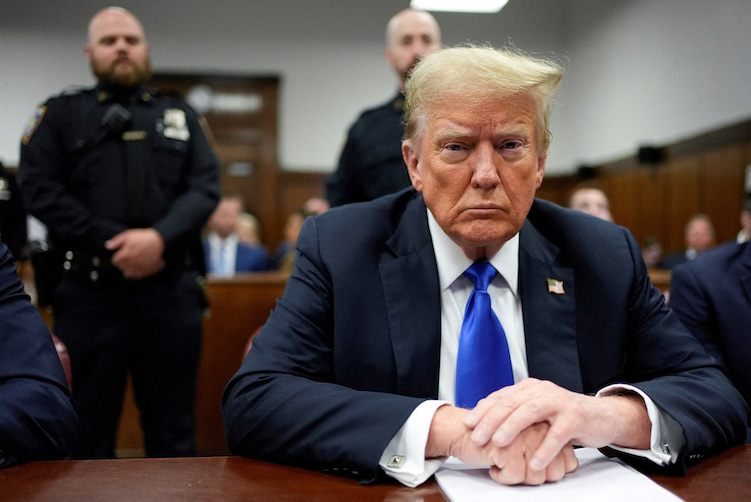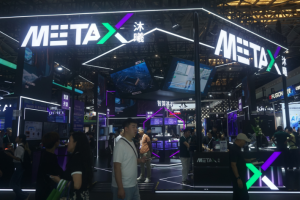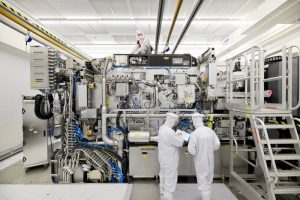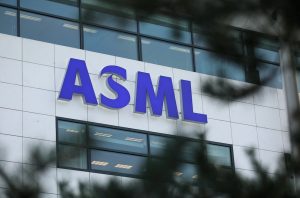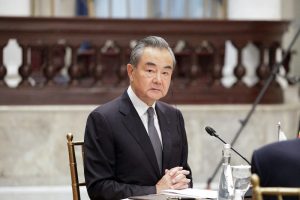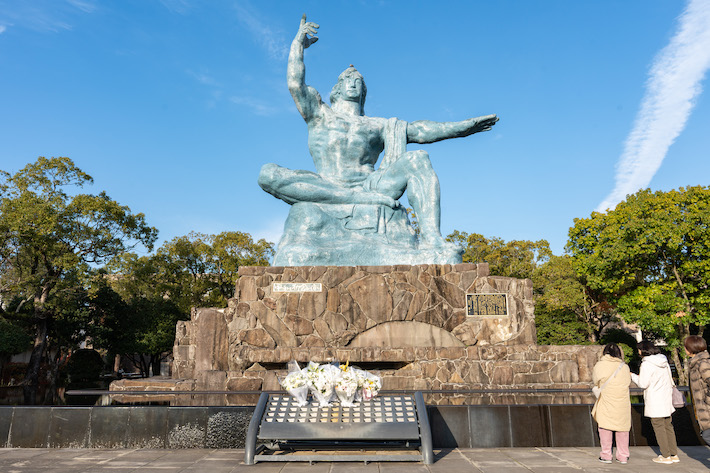Policymakers in Taiwan are hoping the island’s dominance in the production of semiconductors — used in almost every category of electronic devices in the world — will protect it from any tariffs that Donald Trump might impose once he takes over as president in the United States in January.
Trump unnerved Taiwan on the campaign trail by accusing it of stealing American chip business.
He also proposed a 10% tariff on all US imports and a 60% levy on Chinese-made products.
Also on AF: Trump Tariff Concerns Weigh on Yuan, Asian Currencies
But addressing Taiwanese lawmakers on Thursday, the island’s central bank chief said he doubted the incoming Trump Administration would penalise Taiwan.
“Chips and information and telecommunications products are what the US needs most,” Taiwan central bank governor Yang Chin-long said while taking questions from lawmakers.
Taiwan-US cooperation on chips is beneficial for both, he added.
“They design them and we make them,” Yang said.
Yang’s statement was part of a larger report the central bank presented to the Legislative Yuan on Wednesday, as Taiwanese lawmakers gathered to assess how Trump and his potential tariffs would impact the island.
Yang said the chips and other tech products manufactured on the island are materials of such strategic importance that their supply chain should not be disrupted.
But that confidence did not mean people Taiwan aren’t concerned.
Fear of larger economic impact
Taiwan is home to TSMC, the world’s largest contract chipmaker, and is a major supplier to global titans like Apple and Nvidia. The island’s exports are considered a bellwether of world technology demand.
Yang said that if new tariffs proposed by Trump were to go into effect, it would have an impact on Taiwan’s export-dependent economy.
In its report to parliament, the central bank flagged risks to the Taiwanese economy from “spillover effects” of global inflation that could result from potential Trump tariffs.
According to the Taipei Times, the central bank said that if the US raised tariffs, it would “reorganise” global supply chains, “impacting economic growth and inflation around the world”.
Potential tariffs could force “Taiwanese businesses could change their global deployments”, the central bank said.
Taiwan’s “private investments and economic growth are highly susceptible to shifts in the global economy,” it added.
Appeasing Trump
Taiwan has been on alert since Trump’s attacks on the island on his campaign trail. The president-elect said Taiwan needed to pay the US for protecting it from China, which views the democratically-governed island as its own territory.
Beijing has never ruled out military action as a means to gain control of the island — an action that US officials have said could cost the world $1 trillion per year.
Since Trump’s election, Taiwan has been considering measures it could take to appease the president-elect. That includes purchasing a large amount of weapons from the US, according to a Financial Times report.
That would be aside from increasing chip investments in the US, including TSMC’s $65 billion worth of new fabs in Arizona state.
Taiwan also runs a sizable trade surplus with the United States, which Yang said was expected to hit $50 billion this year.
Yang said that apart from buying more goods from the United States, TSMC’s investment in the US could also help address the trade imbalance.
- Reuters, with additional editing and inputs from Vishakha Saxena
Also read:
Taiwan Says TSMC Not Allowed to Make 2nm Chips Abroad, For Now
TSMC to Cut Off All Chinese AI Clients From Its Advanced Chips
Trump Will Have Big Impacts on Trade, Climate Change, EVs
Trump Says He’ll Hit China With Big Tariffs if it Takes Taiwan
Taiwan’s TSMC Joins Trillion Dollar Club Amid AI Frenzy
China War Risk Sees Taiwan’s TSMC Moving Fabs to US, Japan
Another Chip Shortage Looms as AI Frenzy, Climate Change Bite




